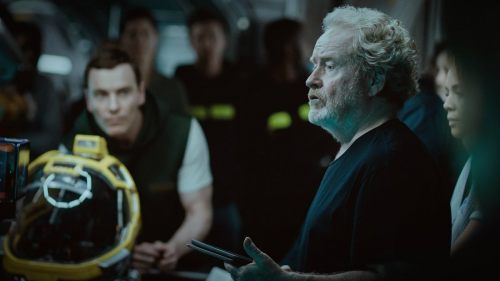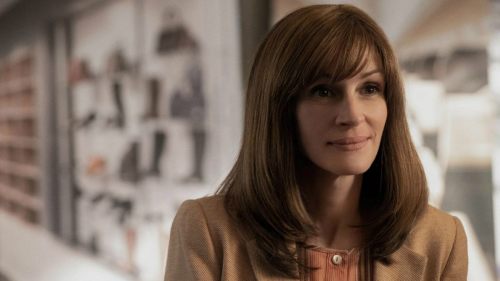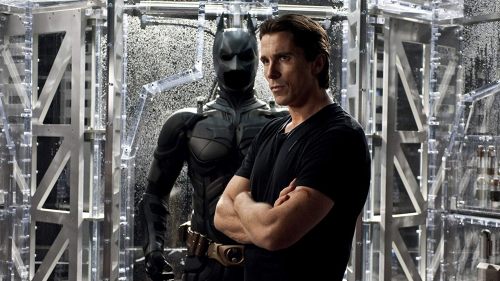EXODUS: GODS AND KINGS Movie Review: Big Spectacle, Shoddy Script
They don’t make ‘em like Exodus: Gods and Kings anymore, and I don’t just mean the grotesque racist whitewashing of Ancient Egypt. Ridley Scott’s Biblical epic is epic in the most traditional Hollywood way, a movie as big and sumptuous as Lawrence of Arabia or, perhaps more appropriately, Cleopatra.
Every dime of Exodus’ budget is on screen, and it’s not all pixels. There are huge practical crowd scenes, massive sets and elaborate, beautiful costumes that are lush, exotic and extravagant. This is big screen filmmaking at its most traditional, a pageant of sight and sound that makes the trip to the theater completely worth it.
Pity about the movie, though.
I was writing a very different review of Exodus in my head for the first half of the movie, which is an I, Claudius-like royal drama in which Pharaoh Seti must pass his kingdom to son Ramses even though he believes his nephew, Moses, is the better choice to lead. When Moses, a wise general and a good friend to Ramses, discovers that he’s not actually Egyptian but rather a Hebrew - held as slaves by the Egyptians - everything falls apart and he is exiled from his home forever. This is good stuff, and and I truly enjoyed the soapy political scheming and Moses’ slow political awakening.
Scott did well to cast Christian Bale and Joel Edgerton in his lead roles as they make excellent foils for each other. Bale is, as always, very grim and gruff, while Edgerton camps it up just enough to highlight the once and future Batman’s endless stiffness. I liked their scenes together, the disdain for Moses that is always in Ramses’ eyes and the stupid, doglike allegiance Moses shows to his cousin. There’s nuance here, and there’s an interesting dynamic… but it all goes out the window in the second half.
Once Moses is exiled and finds himself across the Red Sea and living a new life as a shepherd the film takes a hard left turn into absolute nonsense. Instead of a political awakening the script (credited to Adam Cooper & Bill Collage and Jeffrey Caine and Steven Zaillian) gives Moses a goofy spiritual awakening on the slopes of Mount Horeb. It’s not that I mind his spiritual awakening - this is the story of Moses, after all - but it’s that the movie had been setting up the political plight of the Jews so well that I wanted to see Moses moved by that before becoming God’s chosen leader.
God in the film is a boy, a conceit that works well enough and that reflects the childish and angry nature of the God of the Old Testament. At one point Moses notes that the Hebrew word Israelite means ‘one who wrestles with God,’ and at times Exodus seems as if it will address this - Moses and God don’t always agree, but the conflict between the two, especially as the Plagues hit Egypt, is underplayed. I wonder what a filmmaker like Darren Aronofsky, whose Noah nails the conflict between man and God without even having God in the movie, could have done with this material.
When Moses returns to Egypt it’s first as a terrorist leader, but lest you think the movie will make some interesting statement about the role of asymmetrical warfare in liberation struggles God shows up and tells Moses all this blowing up graineries and burning ships is going to take too long. He wants the Jews free NOW, so he’s going to take it into his own hands.
And that’s when Exodus just goes off the rails. The Plagues are a parade of CGI nonsense, and the way they come, one after another, plays as an escalating series of jokes. Scott plays this all out in montage, with the camera occasionally returning to a grim Moses, unhappy with God’s atrocities. Meanwhile Edgerton, who had been dancing on the edge of camp, plunges straight into here, his Ramses becoming one of the silliest, most one-dimensional characters I’ve seen in years. There was some lip service at the beginning of the film to making Ramses a human whose perspective makes sense, but once the Plagues begin he just becomes a cartoon, and Edgerton plays him like a pouting ponce covered in boils.
The steady parade of visual gags that is the Plagues comes to a head with the death of every first born child in Egypt, and for a few moments Exodus again becomes a movie worth watching. The idea that God killed so many is sobering, and the movie plays the deaths hard, coming in tight as Ramses’ infant child suddenly stops sleeping as a black cloud passes over Memphis.
But beyond that none of the Plague stuff works except as goofy, overly computerized spectacle. What’s worse, the script pulls Moses out of the story for a good half hour, having him do nothing while God visits punishment on the Egyptians. I suspect a lot of stuff was cut here; the movie introduces Moses’ brother Aaron and Joshua (Aaron Paul, so woefully miscast even in a role that has almost no lines that every time he came on screen I giggled) but then does zilch with them. Surely there were other scenes shot, there were moments where the Hebrew rebels have dramatic scenes with Moses. The first half of the film is a well-paced drama, but in the back half it becomes an endless montage.
It all comes to a head at the parting of the Red Sea, and all the goodwill Scott had built up in me during the first forty-five to sixty minutes of the movie died as he had Moses and Ramses meet, mano a mano, on the exposed floor of the Red Sea as the water comes rushing back towards them in a two hundred foot tall tidal wave. It’s just such an enormously silly moment that I wanted Scott to go all the way and have the two fist fight as the water crashed down around them. Why not? If you’re going to go stupid go REALLY stupid.
There are other fine actors in Exodus but, except for a wonderfully out-of-place John Turturro, none of them have anything to do. Sigourney Weaver rolls through two scenes and gets maybe four lines of dialogue, while Sir Ben Kingsley has one scene of exposition to deliver and then he just hangs out in the background of a lot of crowd shots. He also gets slapped around a little. The movie is largely the Moses and Ramses story, but it squanders the dramatic tension of these two men, tight as brothers, coming to empire-shaking blows.
I don’t want to get into the racial stuff too much here; I’ve written about it before and suffice it to say that casting all white people in a movie about Ancient Egypt is both offensive and fundamentally boring. If the film had fulfilled the promise of some of the early scenes I might find myself in the unenviable position of trying to defend it against correct attacks on its casting, but since Exodus flushes away everything good, much as the Red Sea flushes away the Egyptian army, I’m not trapped like that. I will say that if you will ever see Exodus: Gods and Kings you should do it on a big old screen; a movie like this loses a lot when reduced to TV size, and Exodus doesn’t have a script that makes up for reduced square footage of image.
As for Ridley Scott: I simply don’t know what to make of this director anymore. I really liked the rough, fucked up The Counselor, but Prometheus was a mess, and he has more misses than hits in recent years. Still, nobody does epic like Scott these days, and I wonder if a restored director’s cut will make me re-evaluate Exodus the way the longer version of Kingdom of Heaven made me rethink that film. This is a strange thing to say about a two and a half hour long movie that I’m giving a negative review, but I kind of think the film needs another hour.



